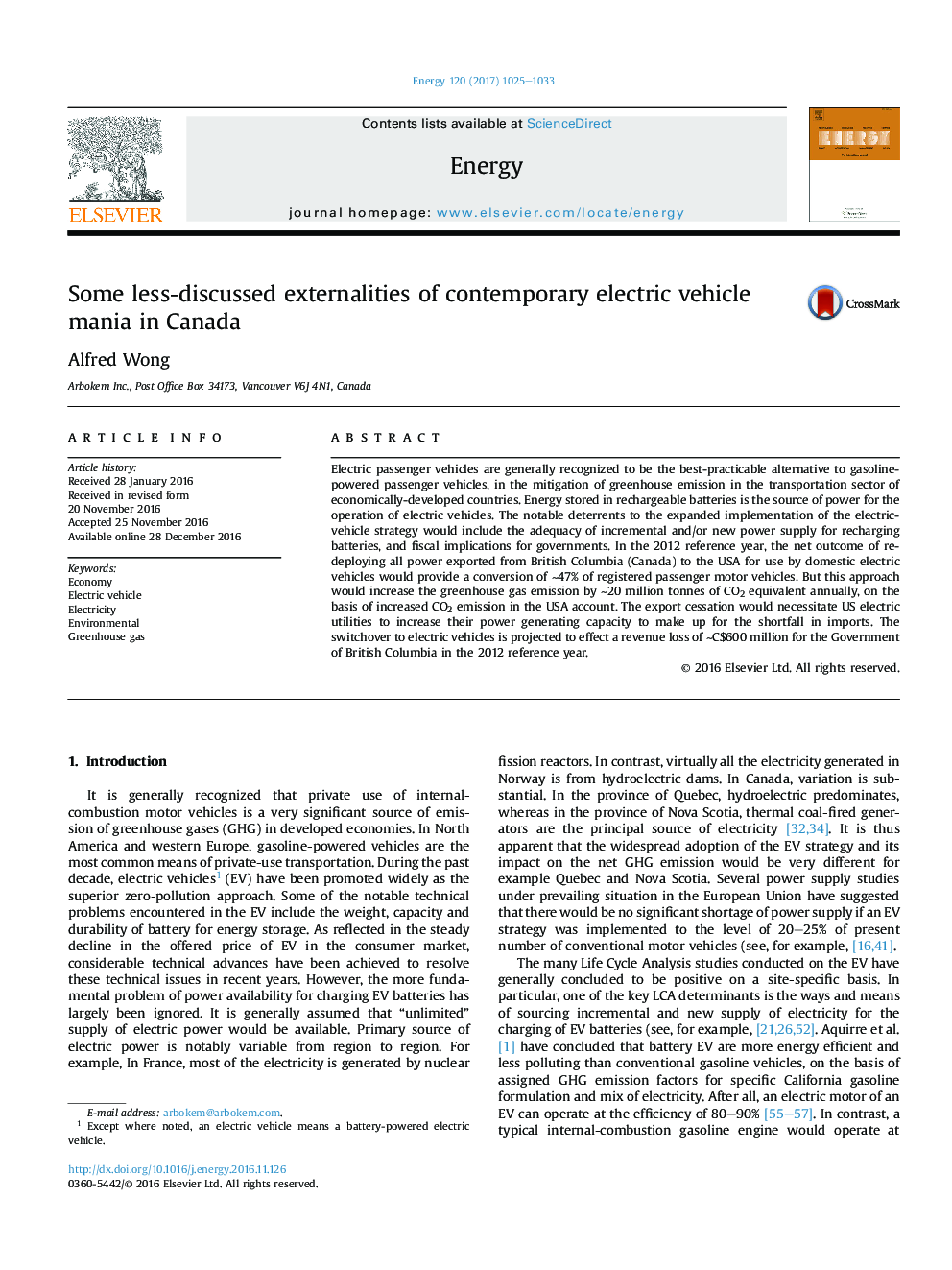| Article ID | Journal | Published Year | Pages | File Type |
|---|---|---|---|---|
| 5476226 | Energy | 2017 | 9 Pages |
â¢Electric vehicles (EV) could reduce GHG emission from private vehicles in Canada.â¢About 47% of gasoline-powered vehicles could be replaced in British Columbia.â¢Adequate supply of electricity for powering EV means less power export to the USA.â¢Resulting net global increase of 20 million tonnes yearly in GHG emission.â¢Affording net decrease of C$600 million annually in provincial government revenue.
Electric passenger vehicles are generally recognized to be the best-practicable alternative to gasoline-powered passenger vehicles, in the mitigation of greenhouse emission in the transportation sector of economically-developed countries. Energy stored in rechargeable batteries is the source of power for the operation of electric vehicles. The notable deterrents to the expanded implementation of the electric-vehicle strategy would include the adequacy of incremental and/or new power supply for recharging batteries, and fiscal implications for governments. In the 2012 reference year, the net outcome of re-deploying all power exported from British Columbia (Canada) to the USA for use by domestic electric vehicles would provide a conversion of â¼47% of registered passenger motor vehicles. But this approach would increase the greenhouse gas emission by â¼20 million tonnes of CO2 equivalent annually, on the basis of increased CO2 emission in the USA account. The export cessation would necessitate US electric utilities to increase their power generating capacity to make up for the shortfall in imports. The switchover to electric vehicles is projected to effect a revenue loss of â¼C$600 million for the Government of British Columbia in the 2012 reference year.
